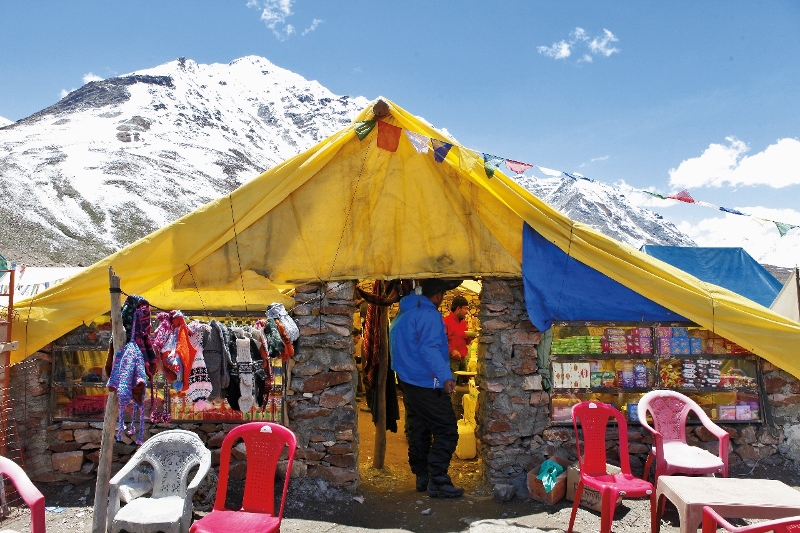
The weather was not encouraging, but we ventured ahead towards Baralacha La, only to be sternly turned back by a group of army men who informed us that there had been heavy snowfall the previous night and thus the pass was closed. More than just perturbed at being stranded indefinitely in a region without any connectivity whatever, we immediately headed back to Zingzingbar and decided to hole up in one of the three tea shops.
This was an experience in itself — not just because I had never stayed in such a place, but also because of the sub-zero temperature. The beds — nay, sleeping arrangements — were decently comfortable, as we slept on one continuous bed inclined backwards slightly, and in a row, packed in like sardines in a tin. The warmth was welcome, but forget about twisting and turning like in your own bed — if the weight of the quilt was not enough, there was just no space to move. The sub-zero night temperature did not help; ditto for the low oxygen — I know how heavily I was breathing that night.
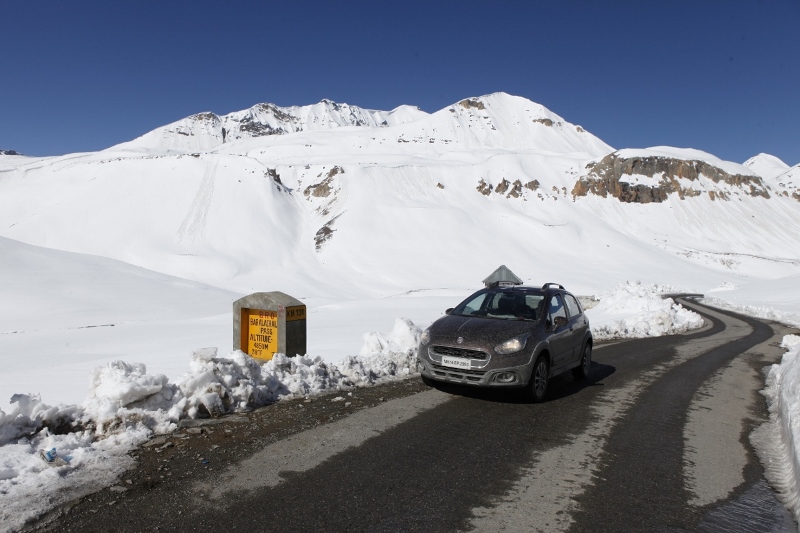
Mind and body conspired to bring about an early wake-up and start the next day, and soon we reached Baralacha La. This is among the more dangerous passes, prone to avalanches and landslides, with travellers hemmed in by the narrow, broken roads. The clear weather aided our quick passage through the snowbound and sometimes ice-layered pass, but soon enough we hit our next hold-up — a long line of trucks at a place called Killingsarai (aptly named, as we soon realised). A bridge had partially collapsed, and the waiting line of trucks, buses, and cars, etc, just kept growing. Some brave drivers attempted to cross through the water, with many getting stuck either in the stream or at the climb up to the road on the other side. The unmanned Border Road Organisation (BRO) outposts offered no solace, but the enthusiastic zeal of a bunch of local taxi drivers, who did some quick temporary repairs, saw at least the smaller vehicles cross over one by one, ours included.


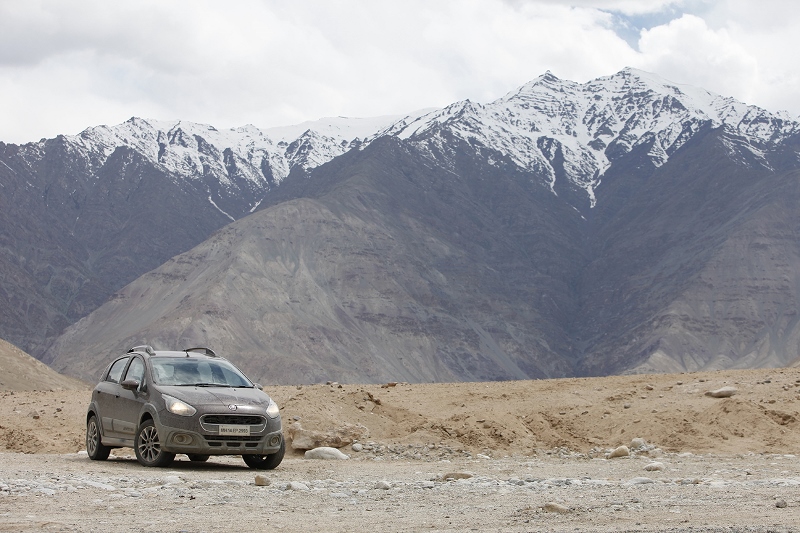


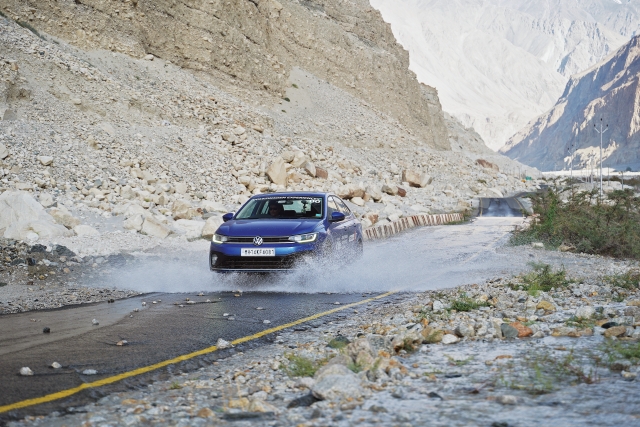
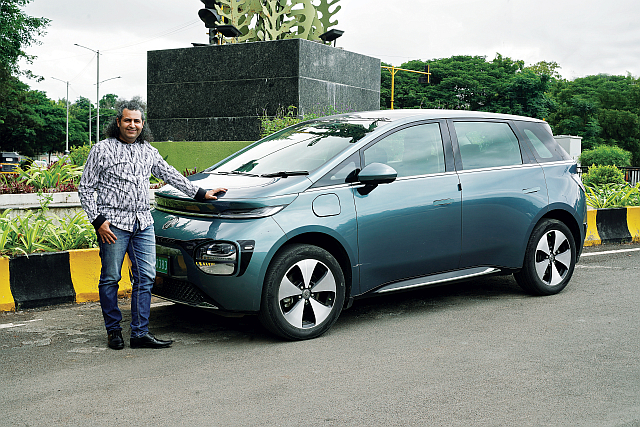
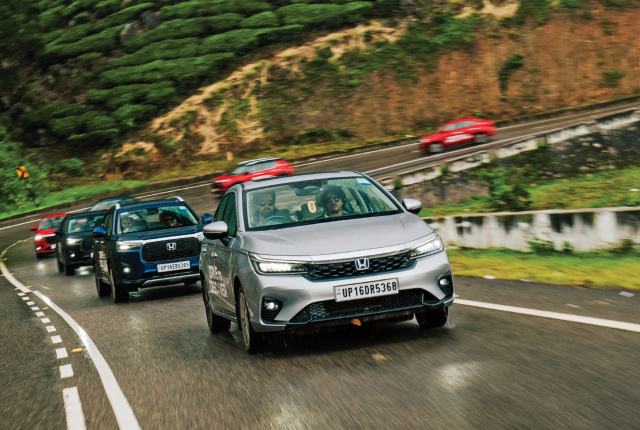
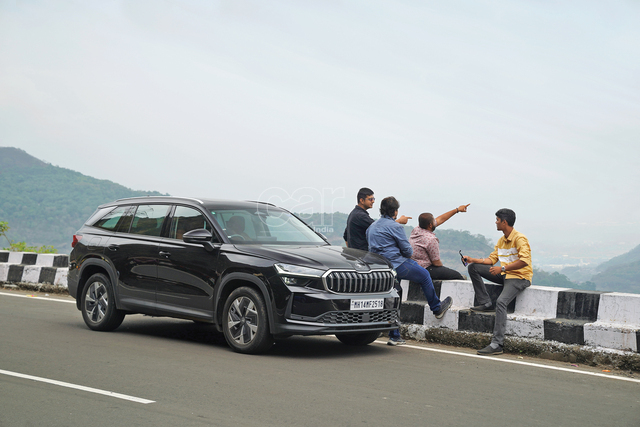

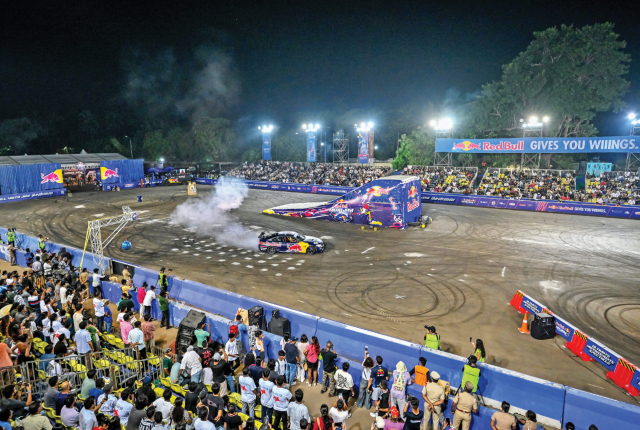
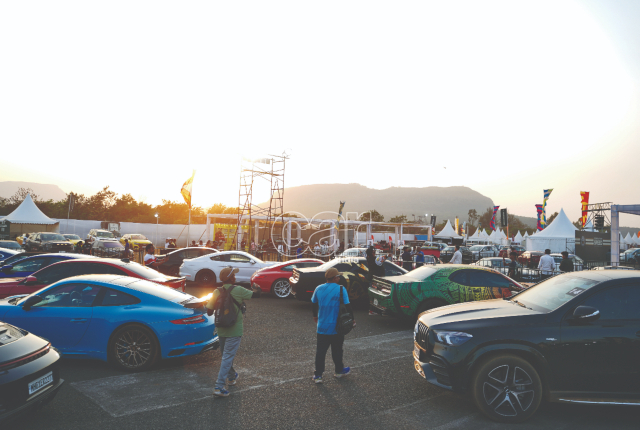


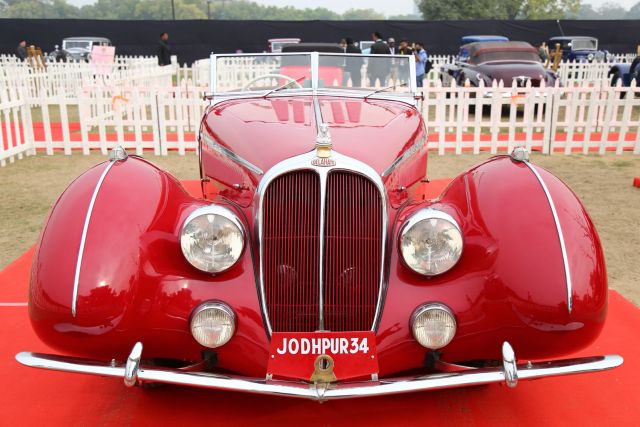
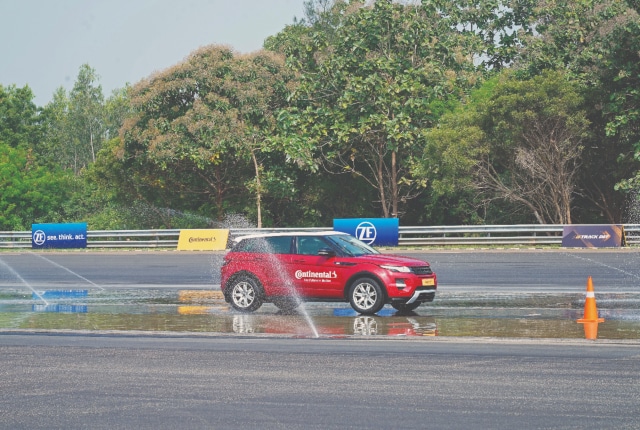
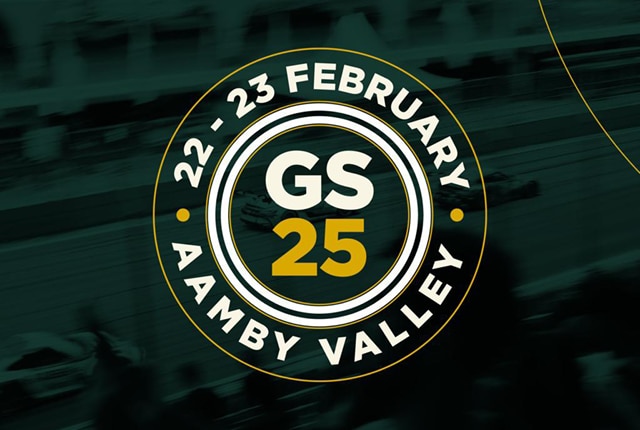
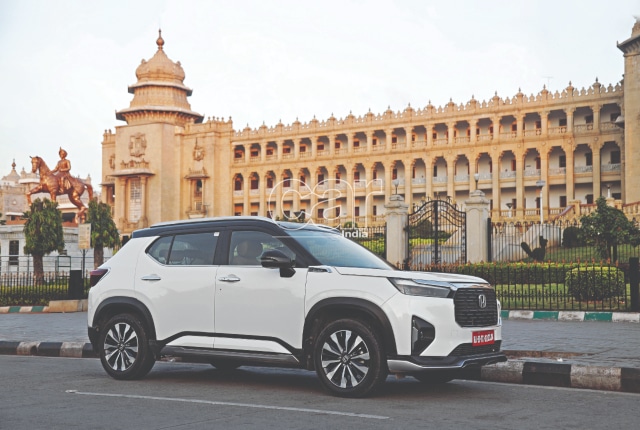
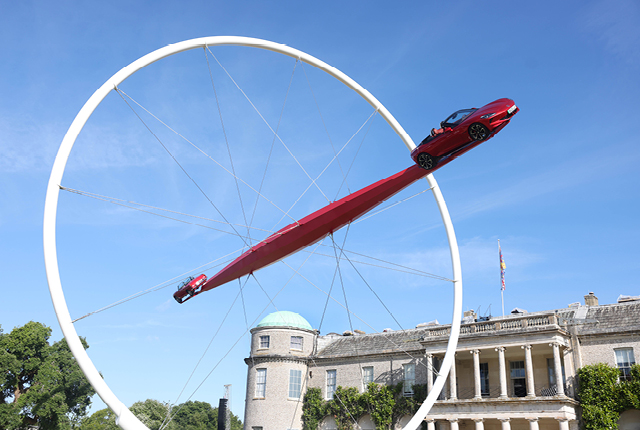
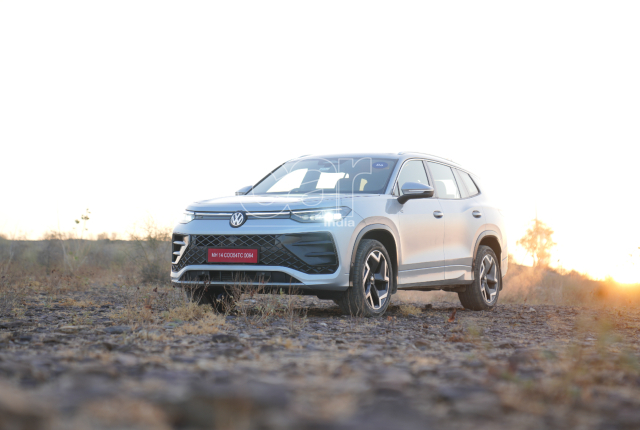

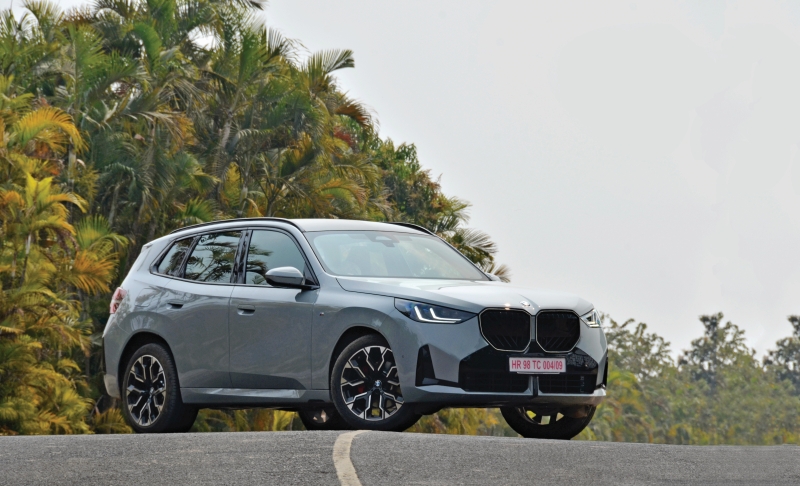

Leave a Reply